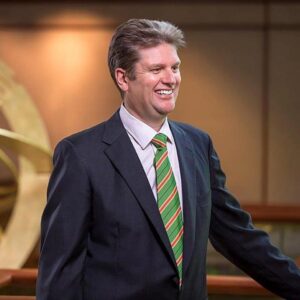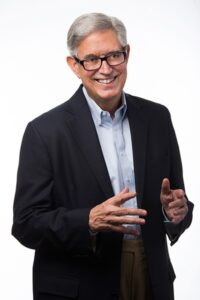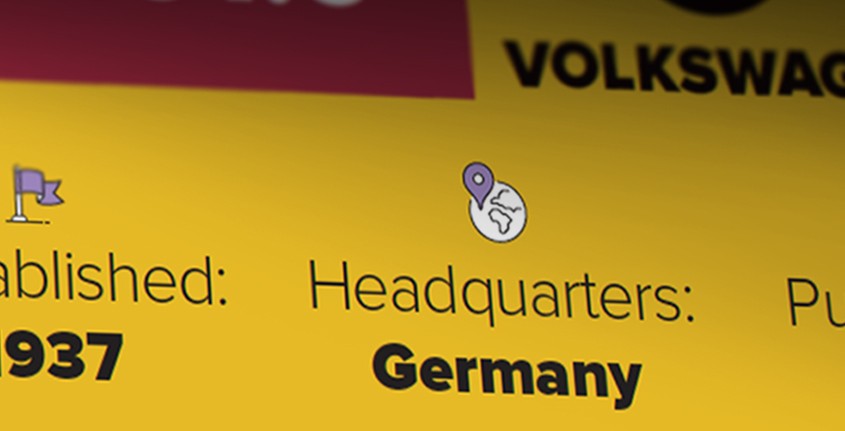UPS’s Emerging Opportunities
The global economic landscape is shifting. By 2040, the purchasing power of the emerging countries of the E7 is expected to double that of the G7. For many organizations, this impending shift presents a massive opportunity to move into new markets. But the stakes are high: How executives navigate this new ground will influence how their brands are received—and how they perform long into the future.
“You have to demonstrate that you’re prepared to execute in a way that is good for that local market,” says Mark Vale, president of emerging markets at UPS.
Mr. Vale has spent the last 25 years helping the $61 billion company unlock the potential of emerging economies, with a focus on long-term brand building. Today, he is tasked with crafting a strategic vision that will position UPS as a shipping leader in rapidly growing markets around the world.
IQ recently spoke to Mr. Vale about the long-term impact leaders can have in a fast-paced business environment and how he hopes to craft a legacy.
IQ: How do you plan to capitalize on opportunities in fast-changing emerging markets?
Mark Vale: If you look at the emerging seven economies of the world, they’re predicted to comprise almost 50 percent of world’s gross domestic product by 2050—while the more established economies of the world are going to drop. So it’s important for us to change our network so we’re doing business in the places that people want to do business in.
As UPS goes into these countries to develop business, it is also important to us to spend time investing in these communities. Our objective is to integrate ourselves into the fabric of these places to support local communities economically.
A good example of this is a program where we offer educational opportunities for [employees]. That can be a game changer for some families. We want people to see that even though we’re a U.S. company, we’re there to help their local businesses and local people be successful.
“As UPS goes into these countries to develop business, it is also important to us to spend time investing in these communities.”
IQ: What are some of the biggest challenges you have faced while positioning UPS for growth in emerging markets?
MV: One challenge is prioritizing where we want to allocate our capital. We have to identify where the growth markets are, making sure they’re in the right stages of economic development where we can succeed. After you’ve done that, the next process is deciding how you’re going to compete. What’s the business model like? Are you going to partner? Are you going to acquire? Are you going to build a business from scratch?
We’ve done all of those things in different areas of the world. And sometimes when you do a combination of those things you get the biggest benefit.
But the biggest challenge is that the pace of change is always ramping up. Many of the countries we operate in are skipping legacy technology. In Africa, many countries have gone straight to mobile. So you have to be prepared to be an early adopter of certain types of technologies in new markets.
 IQ: Given the accelerating pace of change, it seems like it would be easy to make a strategic error. How do you recover from missteps?
IQ: Given the accelerating pace of change, it seems like it would be easy to make a strategic error. How do you recover from missteps?
MV: I think most leaders will understand that in a global company, the balance of local expertise and market knowledge has to be excellent, especially in a networked business. We have made strategic errors where that balance has not been correct. Sometimes this was in the early stages of an acquisition or development of a new product. We have been too focused on driving synergies before we have the basics in place. The best way of dealing with it is to listen to your team, adjust quickly and move on.
It’s important that if you fail at something, you don’t let it define you. Share on X I try to convey to people that if you don’t have failures, you’ll never progress. But a lot of it comes down to timing and being able to react, to minimize the impact of failures and to adapt over time to build on your successes.
IQ: How do you build a lasting legacy in markets that are changing so quickly?
MV: Disruption creates opportunity. It creates the chance to write the next chapter in the legacy. When you look at UPS, we’ve been around 110 years but we’ve had to reinvent ourselves six or seven times in order to adapt. That ability to transform and invest in future results is what makes us successful.
Another big part of building a legacy is doing the right thing for your employees, your customers, your communities and, ultimately, your shareowners. And I think people have to understand that doing the right thing is often the most difficult and longest route.
Therefore, legacy and culture—in terms of ultimate success—are inextricably intertwined Share on X. They’re built one brick at a time over years. And they can be destroyed very quickly if you make incorrect decisions or try to take shortcuts.
IQ: What lasting impact do you hope to leave on UPS’s global operations and culture as these markets develop?
MV: I want to make sure that the voices of those working in emerging markets are heard through the overall organization—and that these employees know the important role they play in UPS’s global network. Something that you do in Dubai or Vietnam can have tremendous impact on package flow as it moves through our network. So, it’s important local teams know that what they do every day makes a difference to customers around the world.
 IQ: Do you think it has become harder for senior corporate leaders to spur long-lasting change as shareholder pressures have increased?
IQ: Do you think it has become harder for senior corporate leaders to spur long-lasting change as shareholder pressures have increased?
MV: Industries are being disrupted at rates that haven’t been seen for some time, so shareholders are demanding that companies adapt and change—and companies want that. The key difference is the time horizon. Shareholders want you to adapt and generate returns very quickly. So it’s about communication and education, saying, “This is why we’re changing, and this is how we’re going to do it.”
It’s really critical to have a long-term mindset. Focusing on the short term, in terms of your decisions and thought processes—that is not a good way to run your business.
When you’re in those tough periods, remaining true to the organization’s values is key. Generally, the companies that make mistakes significantly impacting their brands have gotten away from their core values in some way.
IQ: What do people often misunderstand about building a legacy?
MV: Long-term sustainability is all about driving a culture that is centered around change, adaptation, innovation and growth.
Companies come up with a great idea and the product sells well, but then they don’t capitalize on it by creating this culture. If you look at some of the great brands around the world, they understand that their culture is really important to the future results. UPS is a financially strong company, but it’s this culture where people come to work every day and do their best for the customer—they innovate, they work long hours and they try and give back to their community—that ultimately contributes to the financial results.
 For 10 years, Doug Conant served as CEO of Campbell Soup Co. During that time, he turned the $8 billion company around by defining a core set of strategies and values. IQ spoke with Mr. Conant about how his time at Campbell Soup influenced the legacy he wants to leave in the business world.
For 10 years, Doug Conant served as CEO of Campbell Soup Co. During that time, he turned the $8 billion company around by defining a core set of strategies and values. IQ spoke with Mr. Conant about how his time at Campbell Soup influenced the legacy he wants to leave in the business world.


